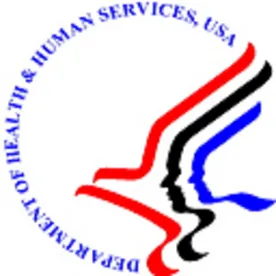The U.S. Department of Health and Human Services (HHS) has released proposed regulations that, if finalized, will significantly narrow the scope of the nondiscrimination requirements under Section 1557 of the Affordable Care Act (ACA). Section 1557 prohibits certain health programs from discriminating against individuals on the basis of race, color, national origin, sex, age, or disability, referencing the grounds and enforcement mechanisms in other civil rights statutes. In 2016, HHS issued final regulations under Section 1557 that apply broadly to health care providers and health insurers, and more narrowly to employer-based health plans. If these entities receive financial assistance from HHS, they need to meet specific standards to prohibit discrimination and set up internal mechanisms to ensure compliance.
The proposed rules adopt a statutory reading that is much more limited than that reflected in the existing regulations, both in terms of the entities subject to the nondiscrimination requirements and in the breadth of those requirements.
Who is Subject to Section 1557?
Under the existing regulations, Section 1557 nondiscrimination requirements apply on a blanket basis to health care providers and health insurers that receive financial assistance from HHS for any health program or activity. Under the proposed rule, that broad application will continue for health care providers, but health insurers will be subject to the Section 1557 requirements only for the program or activity that receives financial assistance.
The new rules also take a narrower view of HHS programs and activities that need to meet the Section 1557 requirements, requiring that those programs or activities be administered by HHS under Title I of the Affordable Care Act or provided by an entity established under that title. The current regulations extend to Medicaid and other HHS programs that are not administered under any title of the Affordable Care Act.
What is Required by Section 1557?
The limitations under the proposed regulations also affect the standards that apply under Section 1557 to entities that must meet those requirements. The proposed rules aim to hew closely to the statutes referenced in Section 1557, for the most part, letting those statutes determine how the Section 1557 nondiscrimination requirements will be enforced. The proposed regulations eliminate some of the most significant and controversial requirements in the existing regulations, including those that define discrimination on account of sex as applying to sex stereotyping, gender identity, and termination of pregnancy. Existing requirements that, for example, require many health plans to cover gender reassignment surgery and related expenses do not appear in the proposed regulations. As a result, application of the nondiscrimination rules under Section 1557 will depend on the breadth that courts give to prohibitions based on sex under Title IX of the Civil Rights Act.
The proposed rules also expressly protect the exercise of conscience-based objections to certain medical treatments under laws such as the Religious Freedom Restoration Act.
While requiring affected entities to take reasonable steps to ensure meaningful access to individuals with limited proficiency in English, the proposed rules provide HHS’s Office of Civil Rights (OCR) with discretion to determine the reasonableness of an entity’s approach based on a balancing test that takes into account:
-
the extent to which the entity encounters and serves a population with limited English proficiency;
-
the nature and importance of the health program or activity; and
-
the costs of extending language assistance services and the resources available to the entity.
The proposed rules do not contain the existing regulations’ requirements for providing notice of nondiscrimination and taglines in foreign languages, again leaving such requirements to other statutes and guidance.
The proposed rules also remove certain administrative requirements mandated by the existing regulations, such as the designation of one or more employees to be responsible for enforcement of the nondiscrimination requirements or the maintenance of grievance procedures for violations of the rules. In applying for financial assistance from HHS, entities would still need to provide assurance of compliance with Section 1557, although the measures needed to comply would be considerably reduced.
Assuming that the proposed rules are finalized without substantial change, health care providers, health insurers, and health plans that have implemented measures to comply with the existing regulations will need to consider the extent to which they will scale back on those measures.



 />i
/>i
